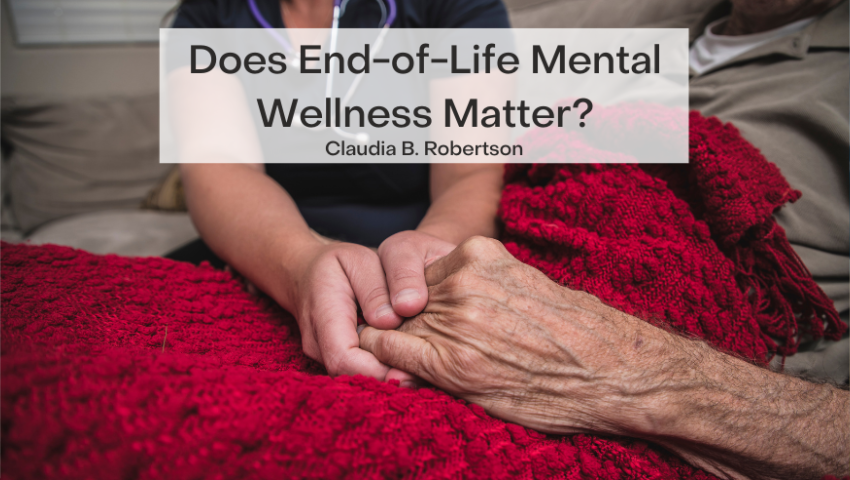Many people have little to no advance notice of when their life will end. However, others may be told, “We’ve done all we can do medically. What can we do to help make you more comfortable as you near end-of-life?” In those days, discussions occur (and rightfully so) about pain management, medical findings, treatments, associated costs, and more. But does anyone address mental wellness? Life satisfaction, and the hope that accompanies it, demands focused attention to mental wellness.
As a loved one nears the end-of-life, one’s ability to perform daily tasks often decreases, and the activities that are most meaningful change. For example, functional mobility may decrease or be lost completely. While this impacts daily life greatly, there are ways to modify meaningful tasks that encourage continued participation. For example, while your loved one may not be able to take an evening walk, they might enjoy chair aerobics or a drive to familiar parks or green spaces. Maintaining gentle activity may help decrease joint pain and increase your loved one’s ability to maintain personal hygiene. For most people who are nearing the end of life, independence often equals increased quality of life.
It is also common for a loved one to experience emotional difficulties, such as depression and anxiety, due to the stressors associated with end-of-life. These types of emotional difficulties can make completing self-care tasks, participating in social events, and participating in many other typical daily experiences difficult or seemingly impossible. However, understanding that emotional difficulties are common among individuals nearing end-of-life allows for preventative treatment that may lessen the occurrence of these difficulties. Preventative treatment includes seeking the support of a mental health professional who can help process thoughts and feelings. The practice of mindfulness in one’s daily routine can help to focus on simple daily accomplishments and build a sense of gratitude. Simply encouraging participation in life activities may help combat these emotional difficulties because they are engaging in one of their favorite activities with you, thereby increasing life satisfaction.
Importantly, as you support your loved one through end-of-life experiences, remember that you, too, are experiencing loss. Take time to get the support you need as a caregiver. Struggling with your own emotions? Consider professional counseling. Talk to a friend. Extra energy? Go for that walk. Racing thoughts? Take time to stop and breathe. Be mindful.
Does end-of-life mental wellness matter? Yes. In fact, mental wellness probably matters more at that time than at any other time.
If you or someone you love is experiencing end-of-life and would benefit from mental wellness support, call SAMHSA’s National Helpline at 1-800-662-HELP (4357).
